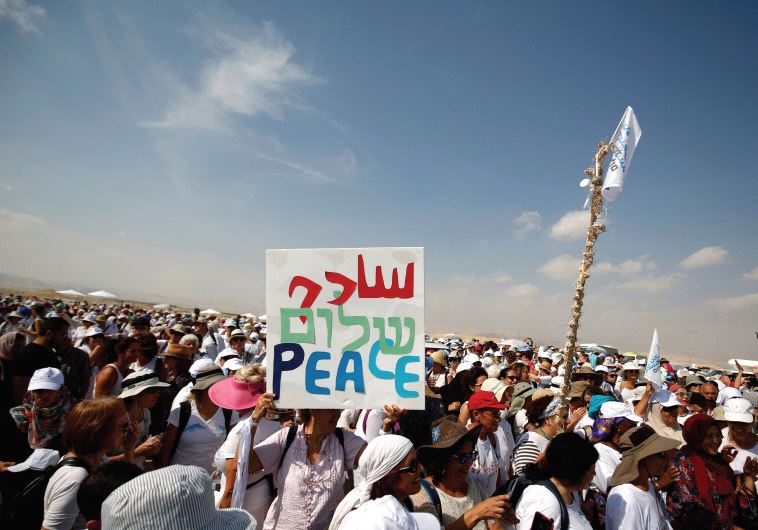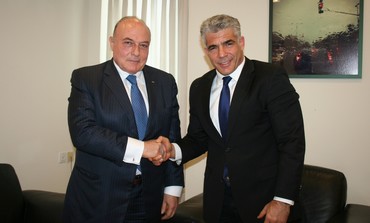With the siege being lifted from the “mukataá” the Government Headquarters in Ramallah, Yasser Arafat is once again “free” to decide if he is prepared to re-impose the Palestinian Authority’s control over the Palestinian territories. There is no doubt that if part of the goals of Israel to isolate Arafat was to create an irrelevant Arafat, then Israel’s policy failed dramatically. Arafat’s popularity over the past couple of months has sky-rocketed amongst Palestinians and people throughout the Arab world. Arafat is viewed by the international community as more relevant than ever. Even President Bush has recently stated that Arafat is the only partner for peace on the Palestinian side and Israel must deal with him.
At the time of Arafat’s release from the imposed imprisonment on him by Israel, the Palestinian streets are filled with vibrant internal debates about the future of the Palestinian Authority, the PA Government officials and the PA Security forces. There is much public criticism regarding the failure of the PA Security forces to provide any real protection for the people. There is a lot of political shuffling and maneuvering amongst individuals and political groups and forces each placing criticism on others and demands for reorganization and for democratization of Palestinian politics. This is, of course, not the first time in the past eight years that calls for new elections and an internal “intifada” within the Palestinian Authority have been heard. The future of people such as Jabril Rajoub, Mohammad Dahlan, Mohammad Rashid, Nabeel Shaath, and others is being discussed by Palestinians throughout the territories. But most of all, people are talking about the future of Yasser Arafat himself. While President Arafat was under Israeli house detention, the symbolism of Arafat as the father of the Palestinian People rose to new heights as memories of Beirut, Tripoli and Karameh were recalled and as a new chapter of the Palestinian collective narrative was being written. Palestinian critics of Arafat over the past years and all of his many supporters rallied around the besieged leader in full identification and admiration for his determination not to surrender to the besieging Israelis.
Now that Arafat is once again “free” there is a strong sense amongst many that the time for real change has come. While there are not many voices calling for Arafat’s resignation, there are many voices calling for new elections and new mandate for Palestinian politics. In fact, it can be expected that Arafat’s popularity will decline dramatically over the coming weeks. Another significant change from the past seems to be the clear intention of Hamas to participate in any future elections. The position of Hamas seems to be that the past elections were based on the Oslo Agreement and gave legitimacy to Oslo, any new elections will be based on the failure of Oslo and on the need to provide full and real representation for all Palestinian views, including their own. At this point in time, there is a great likelihood that Hamas would take a sizable number of representatives in a new Palestinian parliament, perhaps even a majority.
In addition to any internal Palestinian political shake-up, a lot of what is likely to develop depends greatly on the position of the United States. In the upcoming Sharon-Bush meeting next week in Washington, Sharon is likely to hear from a determined Bush an American plan for a new international peace making effort based largely on the Saudi proposals. Saudi Crown Prince Abdallah seems to have taken on a major role in influencing the American administration that the dangers for regional security (read: oil) are too great if the Israeli-Palestinian dispute is allowed to continue without being controlled and scaled down significantly. While there seems to be little real faith in the American Administration that Sharon and Arafat are the leaders most likely to bring about an end to the conflict, the Administration’s voice seems to be clear in saying to both sides that they have no other partners except each other to deal with.
In planning for a regional peace conference this coming summer, the American Administration also seems to recognize the need for European involvement in answering the international perception that this would create greater balance in any process of mediation or laying down an international plan for regional peace. Sharon is apparently coming to Washington with his own plan for that regional conference in is briefcase. Sharon’s plan is likely to talk about a long-term interim agreement for a period of at least 20 years during which time a Palestinian state could be created in parts of the West Bank and Gaza – those parts which are currently under the PA’s jurisdiction with linking roads between the islands of Palestinian authority in order to create some kind of Palestinian territorial integrity. Sharon’s plan will not speak of any significant Israeli withdrawal or the removal of any but a few small isolated settlements. This is of course, from the viewpoint of the Palestinians, the Arab world, the EU and others, a non-starter and will not lead to any reduction in violence or an end to the Palestinian struggle against the occupation.
The only way at this point to lead to a reduction of violence is through the creation of a political process where the end game and a reasonable timeline for implementation is known from the outset. The end game, or the conditions for the end of conflict are well known to everyone: the end of the Israeli occupation, the creation of an independent Palestinian state in 95+% of the West Bank and Gaza, with the removal of all those settlements that will not be within the agreed areas for Israeli annexation, equitable territorial exchange for the 5%(+/-) of territory to be annexed to Israel, Jerusalem as a shared capital, a resolution of the refugee issue based on the recognition of UN Resolution 194 with the implementation of the Right of Return to the Palestinian State coupled with a massive international financial effort to fund the resettlement of Palestinian refugees and the economic rejuvenation of the Palestinian state. This is the formula on which the Saudi plan is based with regional arrangements for security, peace and normalization with the Arab world, and the resolution of the conflict with Syria on the Golan Heights. This whole plan is also predicated on direct international involvement, guarantees, means for verification, enforcement and dispute resolution between the parties through the utilization of third parties agreeable to the sides for these various functions.
As the Israelis and Palestinian are incapable of extracting themselves from their self-created predicament, the only way forward is for an international lifesaver to be tied to the two sides without any possibility for refusal. It seems that any failure of the international community led by the United States to come to the rescue will result with the continuation of the process of political and physical suicide of the two peoples, putting the entire world’s security at real risk. The determination of the international community should not be limited to the thinking that this is necessary to save the State of Israel and the Palestinian people from themselves (which is true) but more widely, this is necessary to prevent the destabilization of the entire region. Perhaps the new sense of urgency that can been detected in Washington is based on the success of Crown Prince Abadallah to convince the American administration that regional security and stability in the Middle East should not be taken for granted.
Without a new sincere international peacemaking effort, the Israeli-Palestinian dispute will continue to escalate. The Tenant and Mitchell Plans detached from a real political process, as described above, are irrelevant and will not be implemented. There will be no reduction in violence. The success of the Israeli operation in eliminating the terrorist infrastructure will be very short-lived as the Palestinian will for continuing the struggle has only increased. While many Palestinians voices can now be heard condemning or criticizing the use of suicide bombers against the Israeli civilian population, at the same time, Palestinians say that this is their atomic bomb. If they had conventional weapons, such as fighter planes and tanks, they would use those to fight the Israeli army, but since they don’t have conventional weapons, the non-conventional weapon of suicide bombers is what remains. There is no doubt that under the assumption that the occupation will continue, that Israel will continue to have a free hand to enter Palestinian areas as unilaterally determined by Israel, no Palestinian leaders alive will support the end of the struggle and the Palestinian people at large will continue to support the use of all means available to fight Israel, including suicide bombers.
The optimists amongst high ranking Israeli security and military personnel say that it will take the Palestinians about two months to recreate the infrastructure of terror, the pessimists say that it will only take one month. Surely without an acceptable political process initiated by the international community, the situation will continue to deteriorate and endanger the security and stability of the entire region and the world.
One last word, regardless of what happens, Israelis and Palestinians who know that eventually we will reach peace on the basis of the conditions above, must not give in to the emotional drive to cut links and contacts. Quite the opposite, we must remain committed to dialogue aimed at planning our future together through a vision of cooperation, mutual respect and dignity. There are many issues that the international community cannot resolve and many details that we together must find the answers for working out. The international community can provide us with the framework, but determining how to share Jerusalem, how to cooperate economically, how to manage the water resources, how we will protect our environment and conserve our natural resources, and more, require that we continue to work together, to meet each other and build a real basis for lasting peace.


